Some Californians regularly visit the Eastern Sierra Nevada mountains (skiing in Mammoth, climbing Mt. Whitney, or heading up the back way to Yosemite or Lake Tahoe), but we haven’t traveled to this area in over 25 years! We hope it won’t be another 25 years before we come through here again.
On this (quick) 2-week trip, we headed out from our home campground in Valencia, California. Our first stop was Lone Pine, California, a town of about 2,000 people, which serves as a launching point both for those going to Death Valley (the lowest spot in North America) and those climbing Mt. Whitney (the highest spot in the lower 48 states).
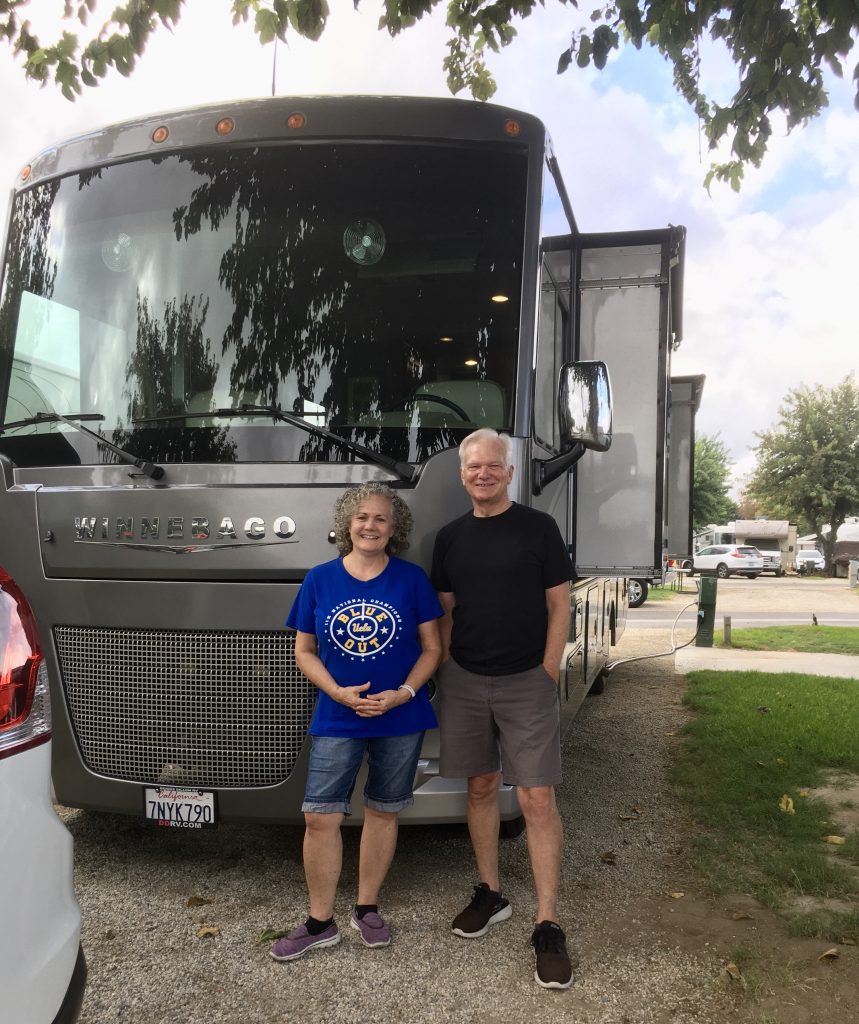
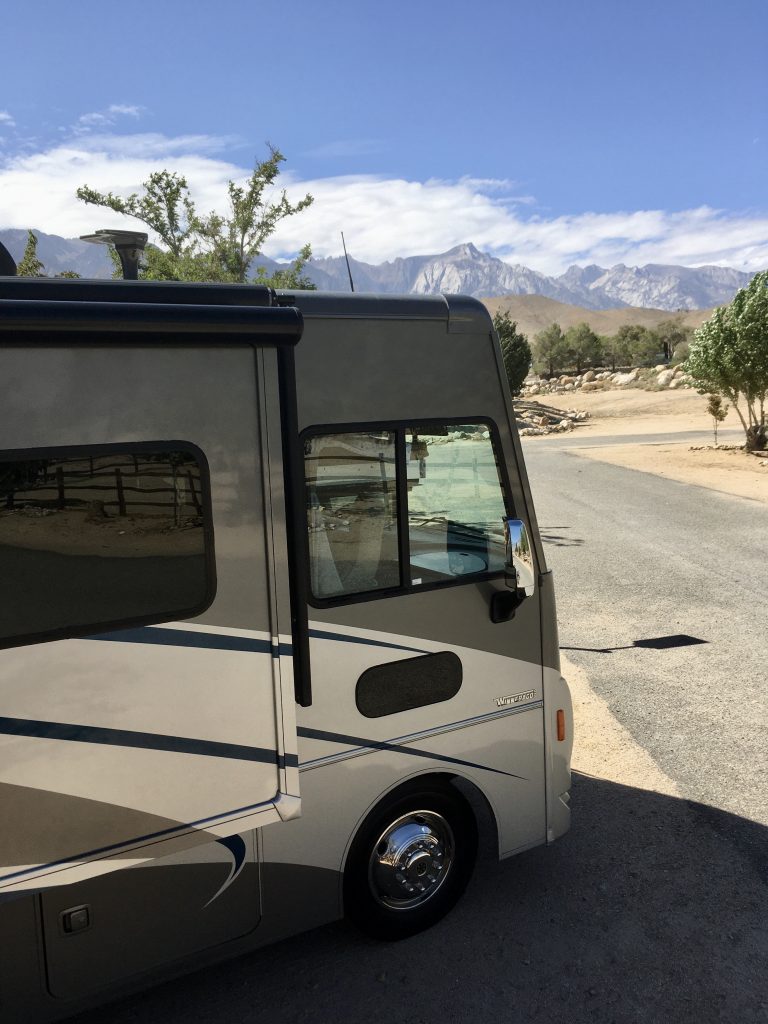
Four highlights of our time in Lone Pine (in addition to the dark starry skies at night):
1. Enjoying the views on the drive to Whitney Portal
2. Visiting the Manzanar National Historic Site
3. Visiting the Museum of Western Film History
4. Hiking in the Alabama Hills Recreation Area
1) I had never done the drive to Whitney Portal (free), so we ventured out in the morning to experience this windy road that climbs west of town from 3,750 feet to 8,365 feet over the course of about 8 miles. After a fairly straight road past the Alabama Hills (see below), the road starts to twist and turn as it rises steeply. Mt. Whitney was in full view for much of our drive, and we were thrilled when the clouds cleared enough for us to see the top (we understand this is not that common an occurrence).
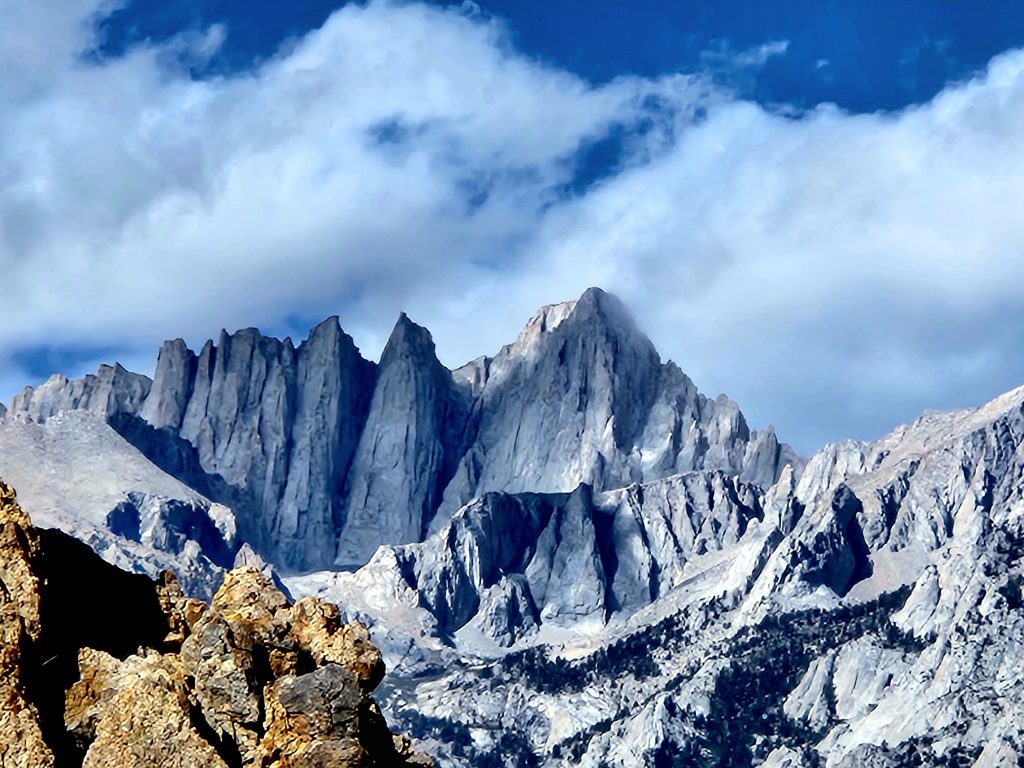
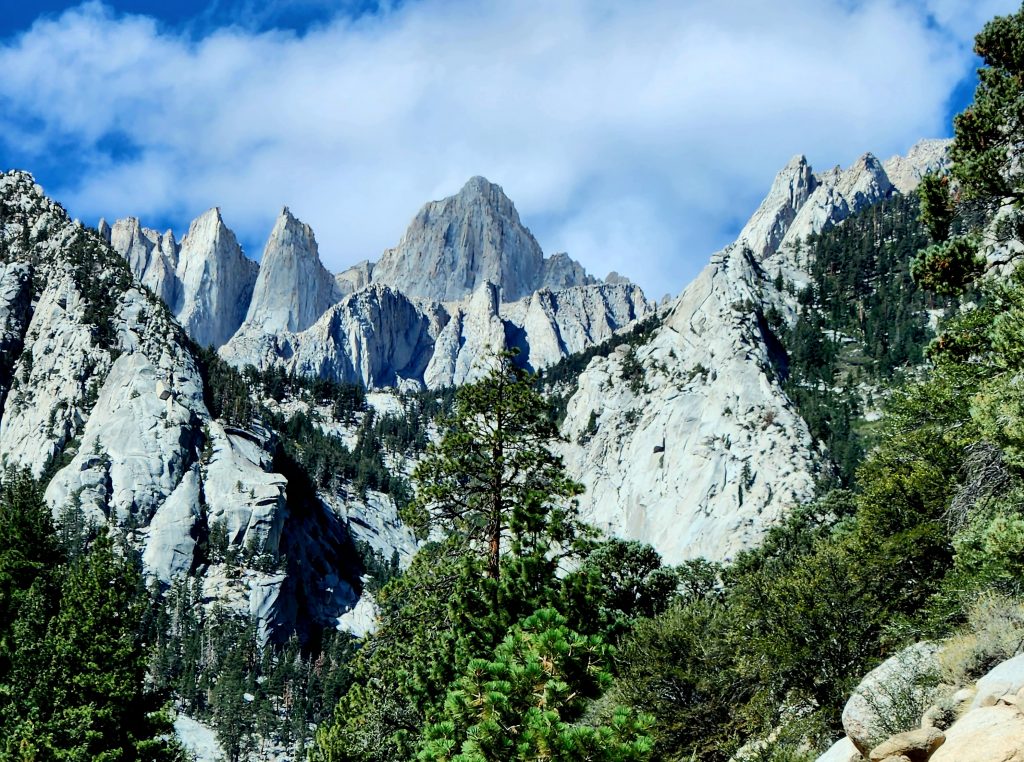
Whitney Portal is where mountain climbers camp and launch their hikes to the summit of Mt. Whitney, via a 22-mile round-trip hike that climbs 6,131 feet in elevation. The Whitney Portal end-of-the-road site is a lovely area with picnic spots, lots of campsites, a small pond and a large waterfall.
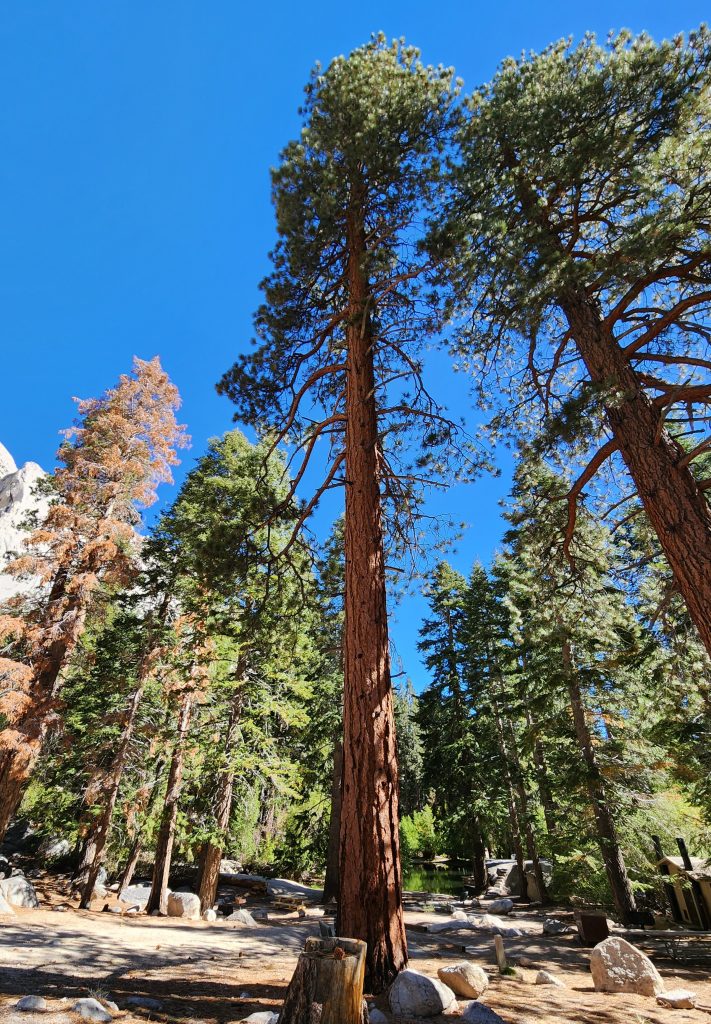
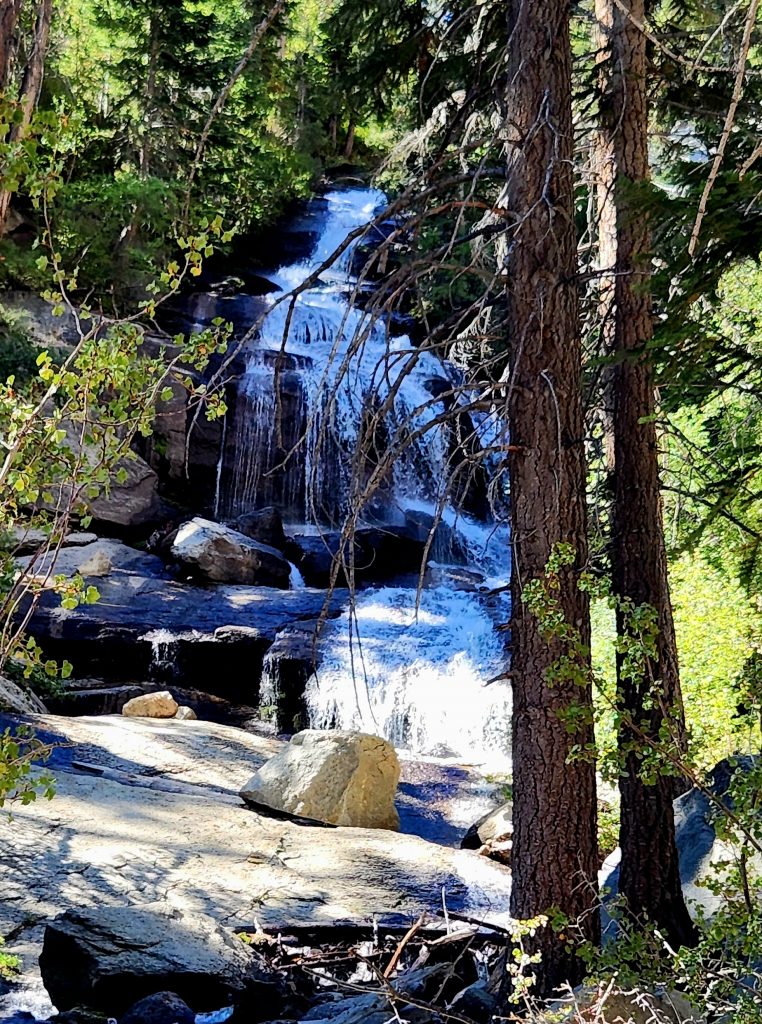
Close-up views of Whitney’s peak made the drive extra special, as did the views on the way down of the Owens Valley, Alabama Hills, and the Inyo Mountains of Death Valley National Park.
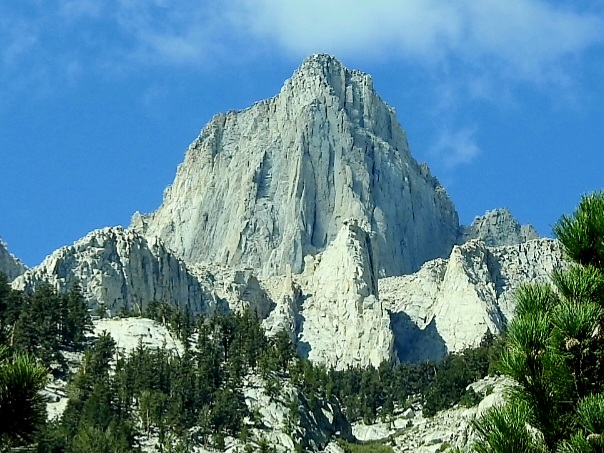
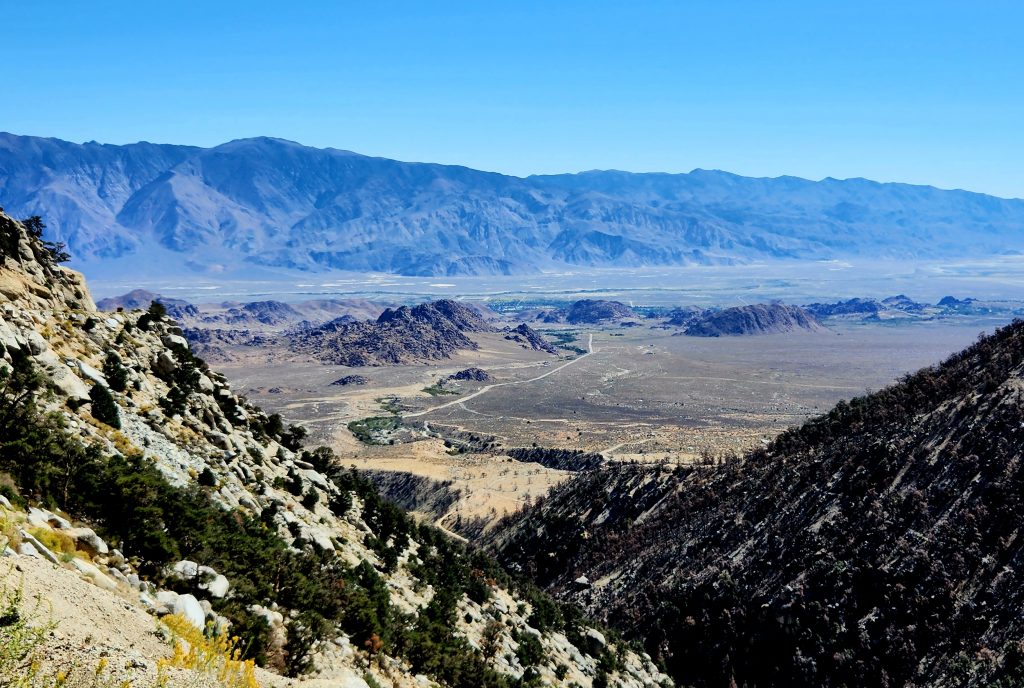
2) The Manzanar National Historic Site (free) is located about 10 miles north of Lone Pine. Windy and desolate, this site was one of several internment camps for Japanese residents and American citizens of Japanese descent during World War II. Over 10,000 Japanese Americans and Japanese immigrants were imprisoned at Manzanar, and their lives are documented through photos, journal entries, and many historic artifacts at this site.
The visitor center is excellent, containing several rooms of photos, documents, and interactive exhibits detailing the lives of those at Manzanar, and exploring the history of the Owens Valley before and after the war.
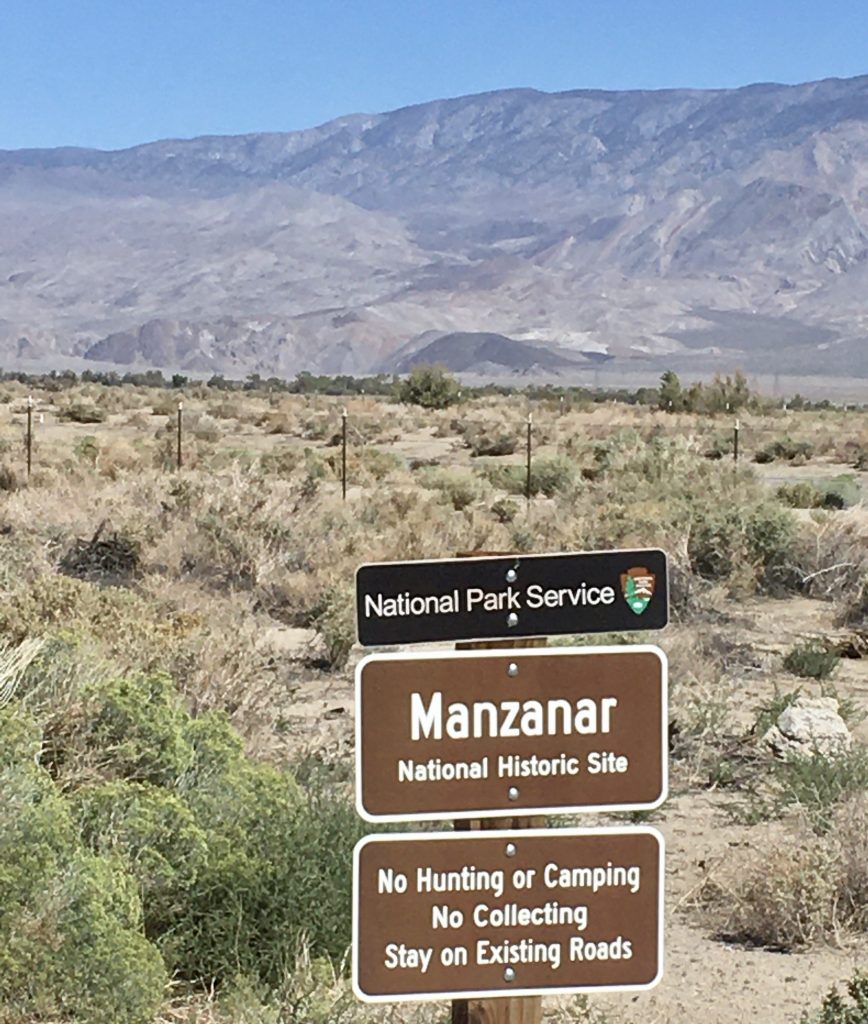
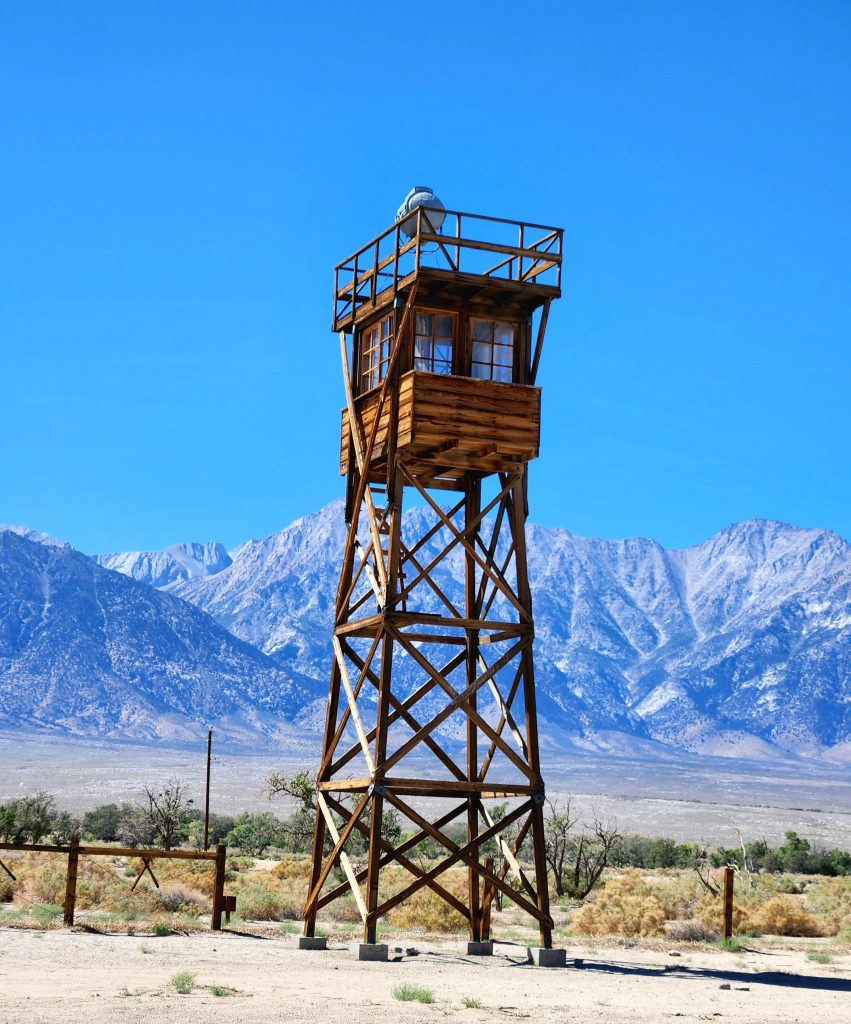
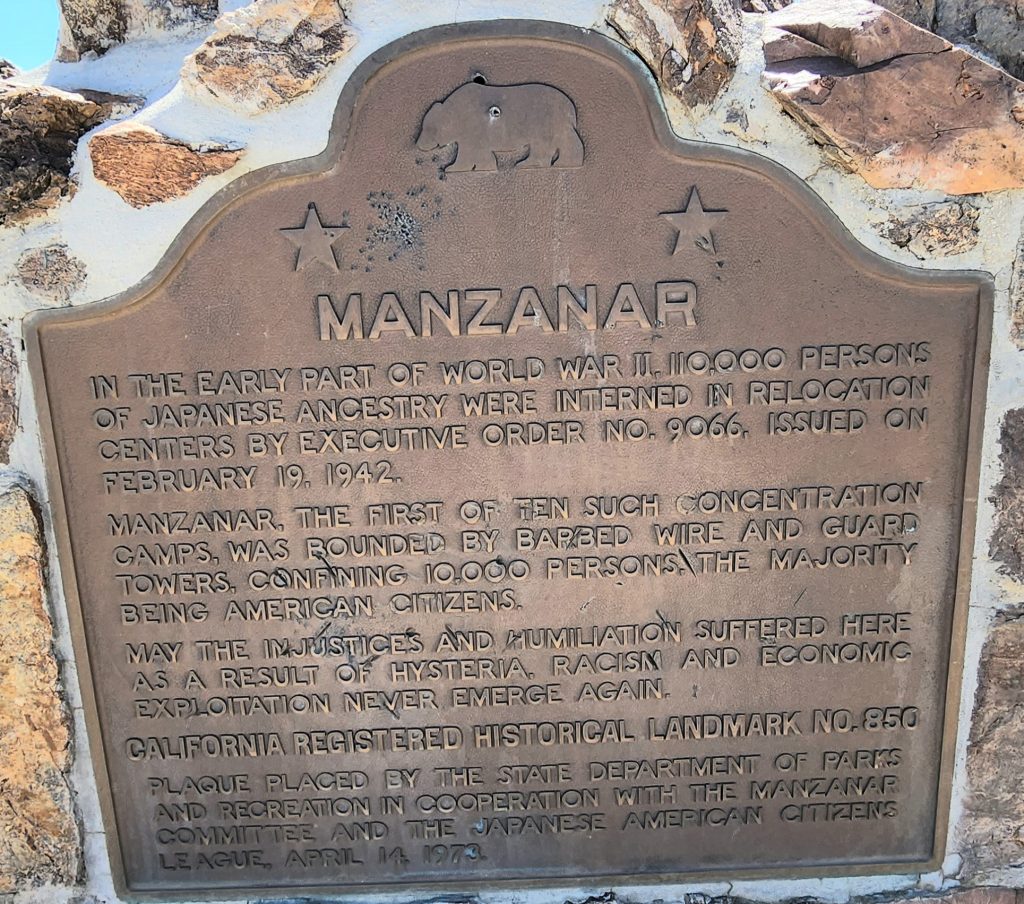
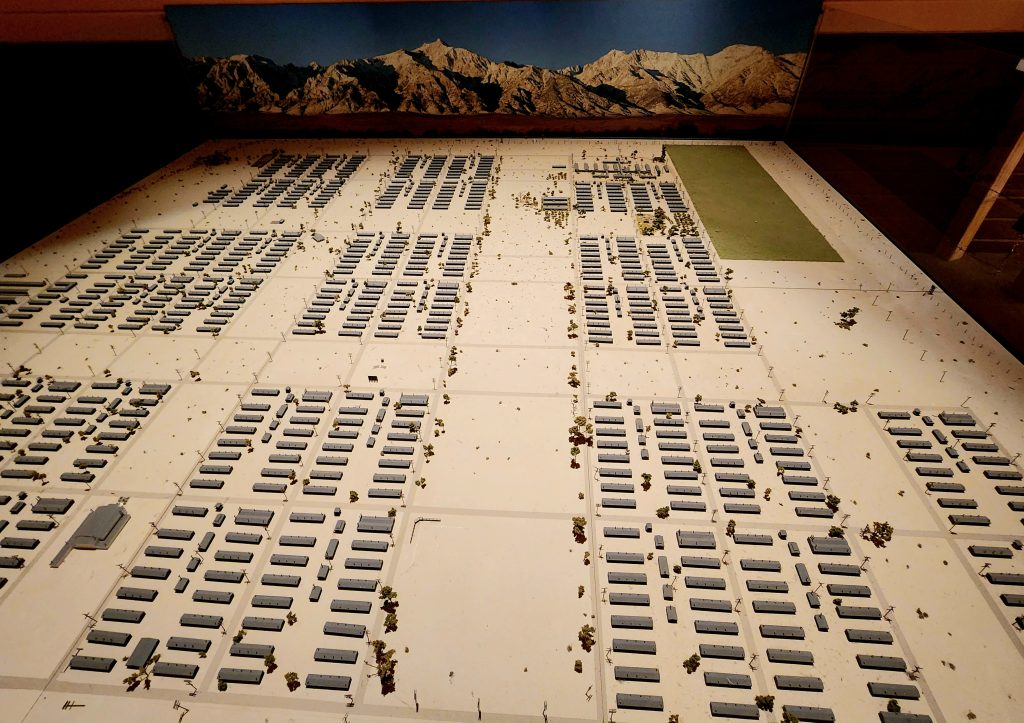
The self-guided auto tour is easy to follow around the large camp, though we hope that eventually they will be able to reconstruct more replicas of the facilities. You can walk through a barracks where whole families and often strangers were forced together into small rooms, and visit the garden sites where the Manzanar residents created beautifully-manicured parks out of literally nothing. We hope the National Park Service will invest more funds at this important historic site to remind and inform visitors of this sad stain on our national history.
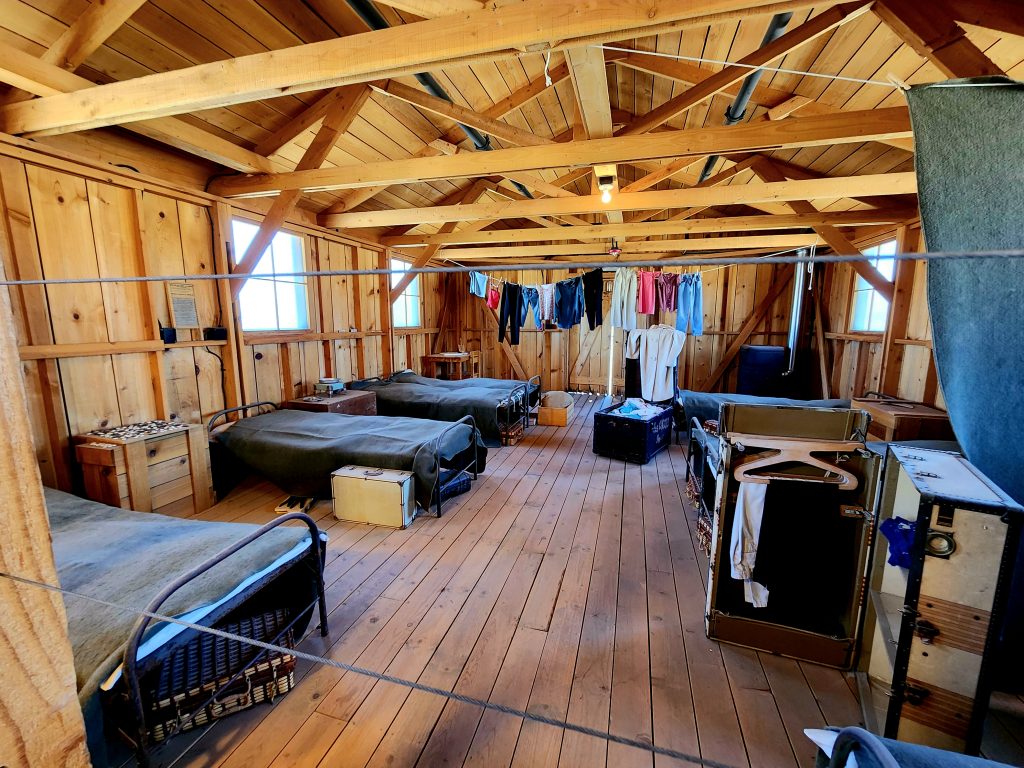
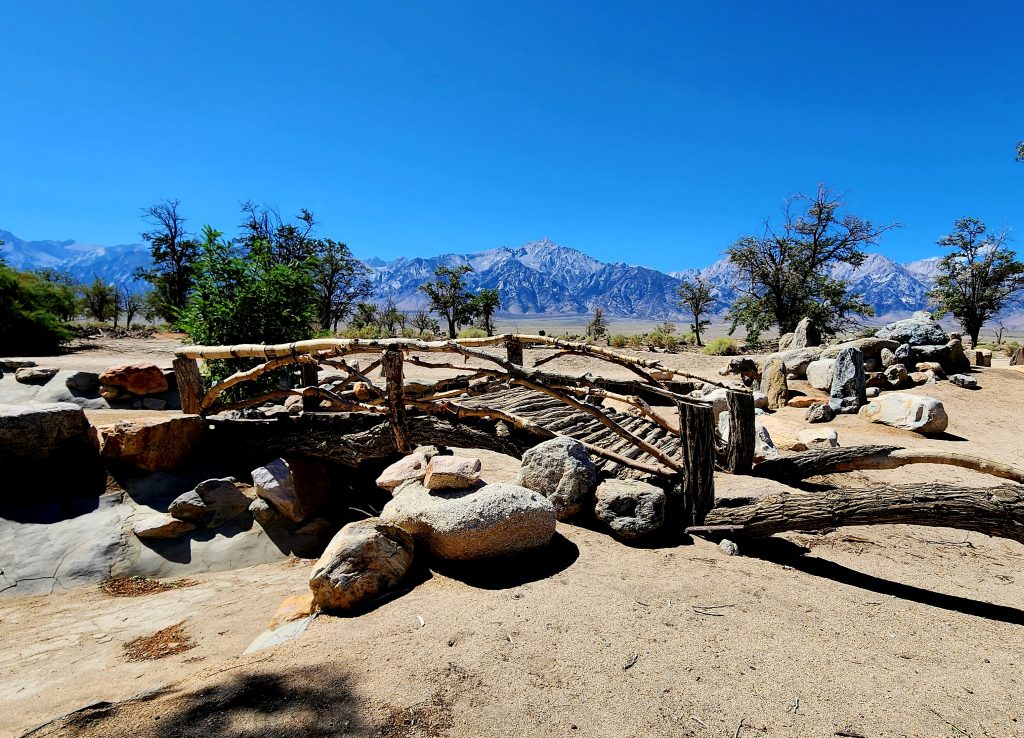
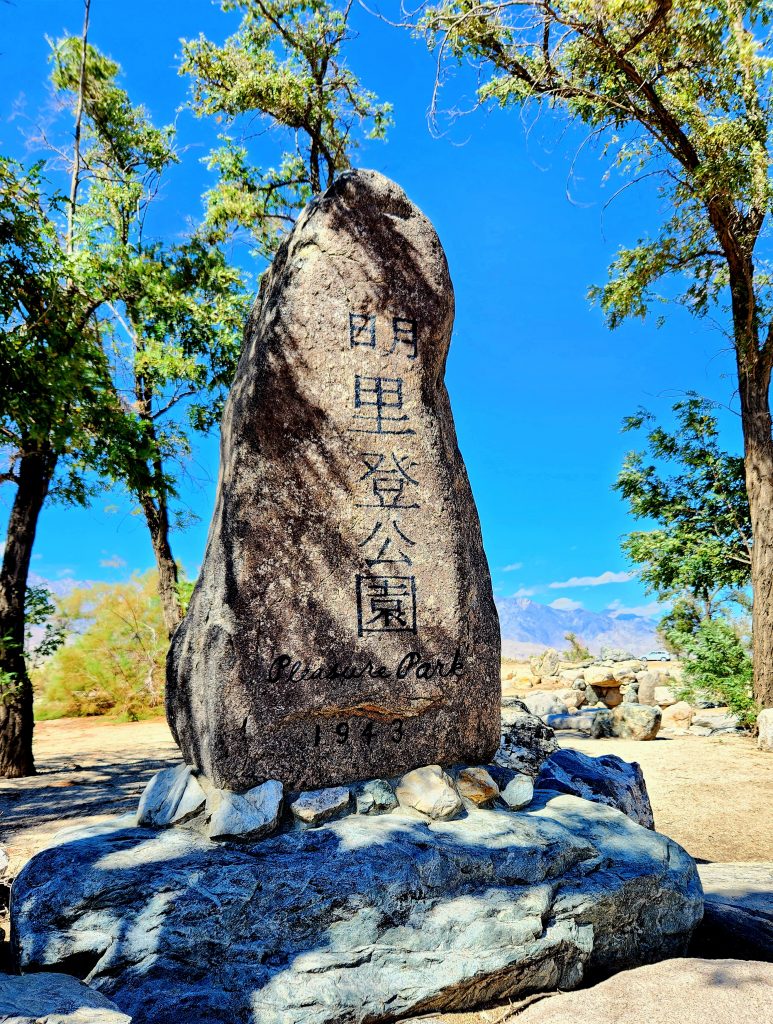
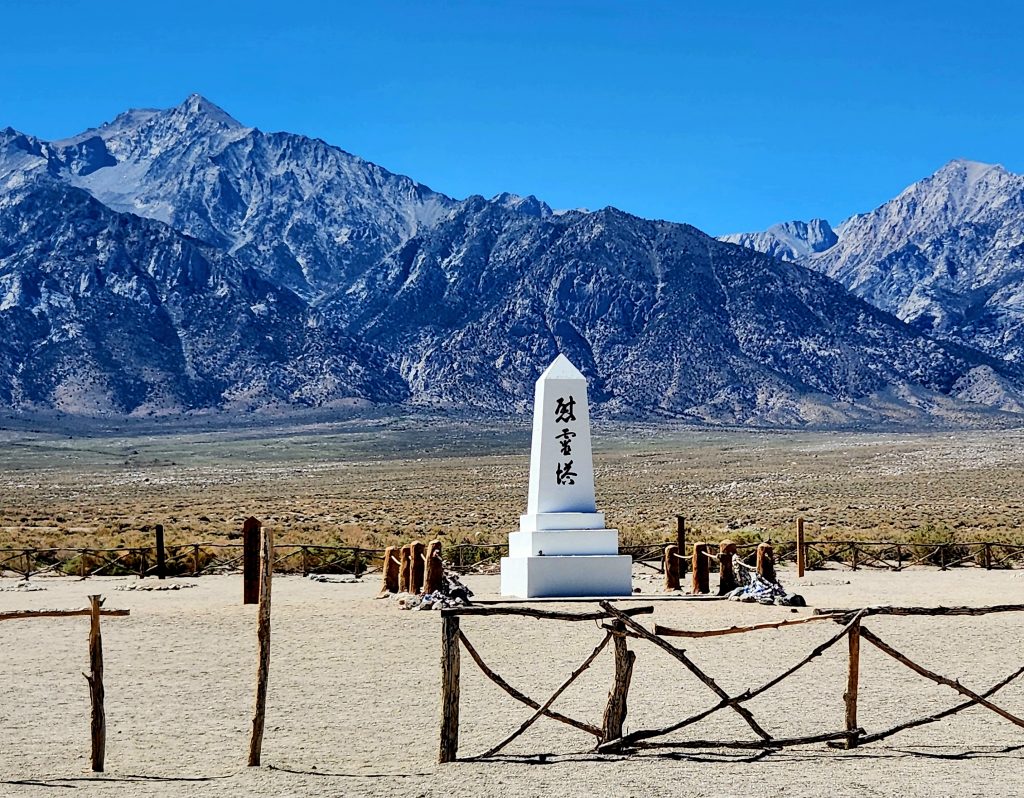
Visiting Manzanar and reading Farewell to Manzanar by Jeanne Wakatsuki Houston (and her husband James D. Houston), whose family lived there for several years gave us a real sense of what these people of Japanese descent endured for 3 ½ years.
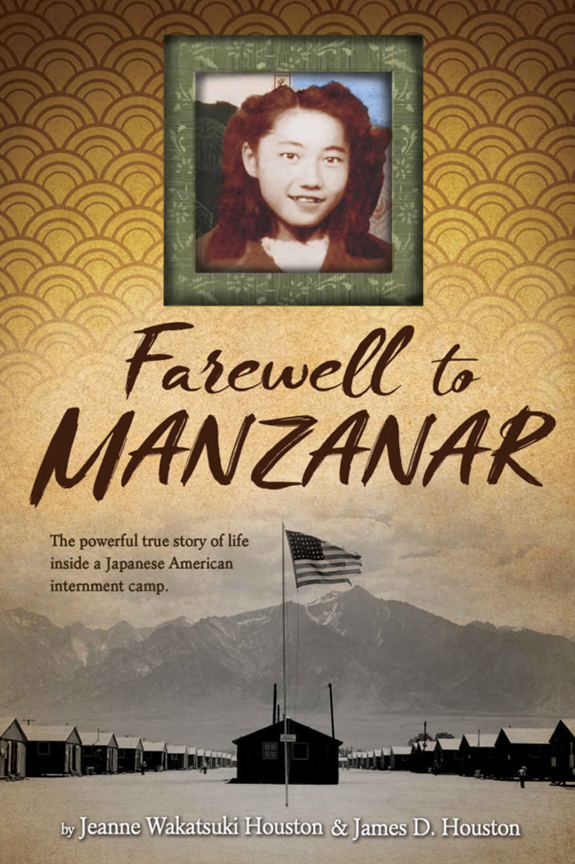
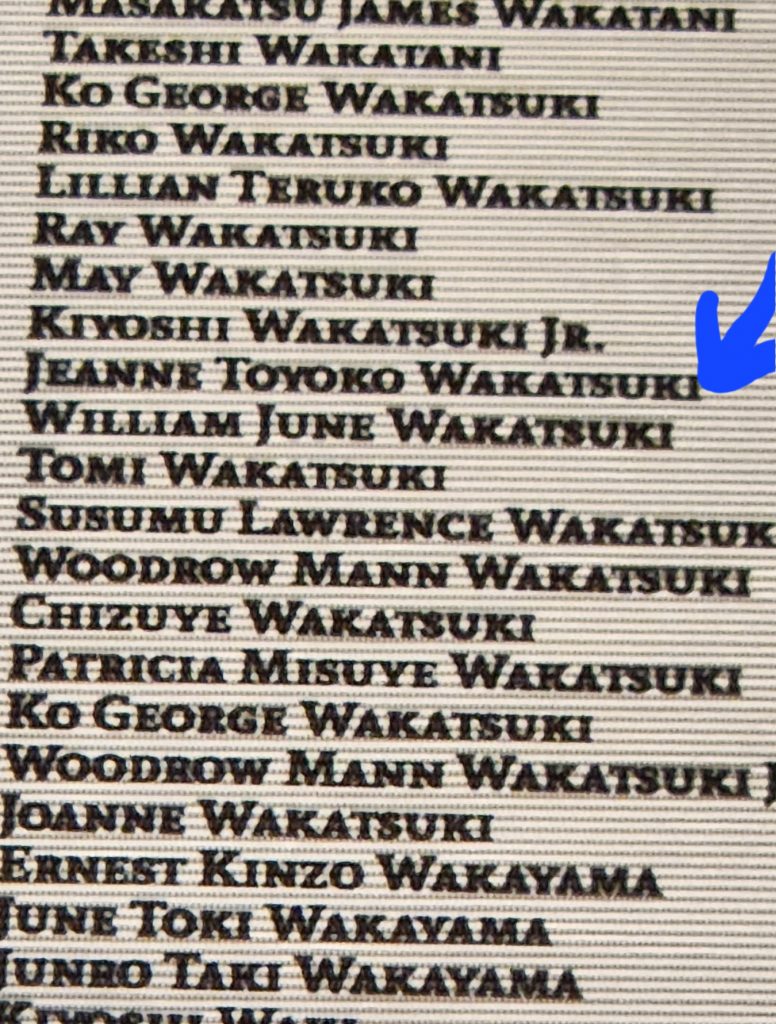
3) On a lighter note, the Museum of Western Film History (donation $5.00) is a small, artifact-packed museum that highlights the over 400 films and numerous TV shows that have been filmed in the Lone Pine area. For years, the Alabama Hills area west of town, with the Sierra Nevada mountains behind them, served as the setting for Westerns and even sci-fi movies, from silent movies in the 1920s and 1930s to Iron Man in 2008—almost 100 years of film history!
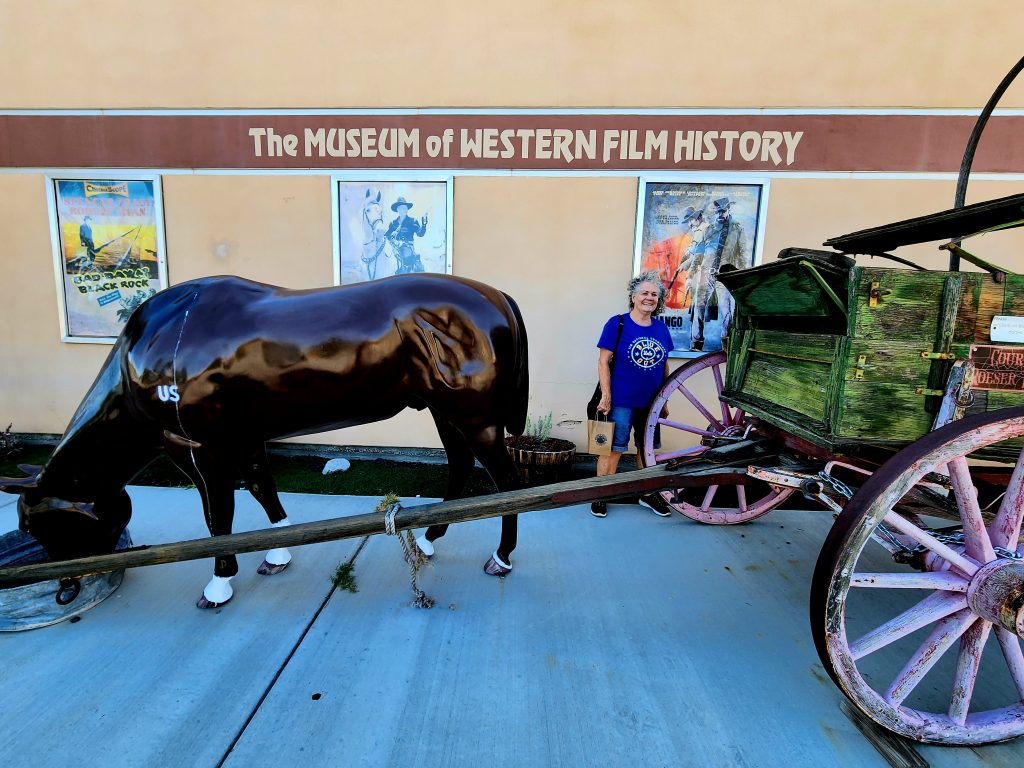
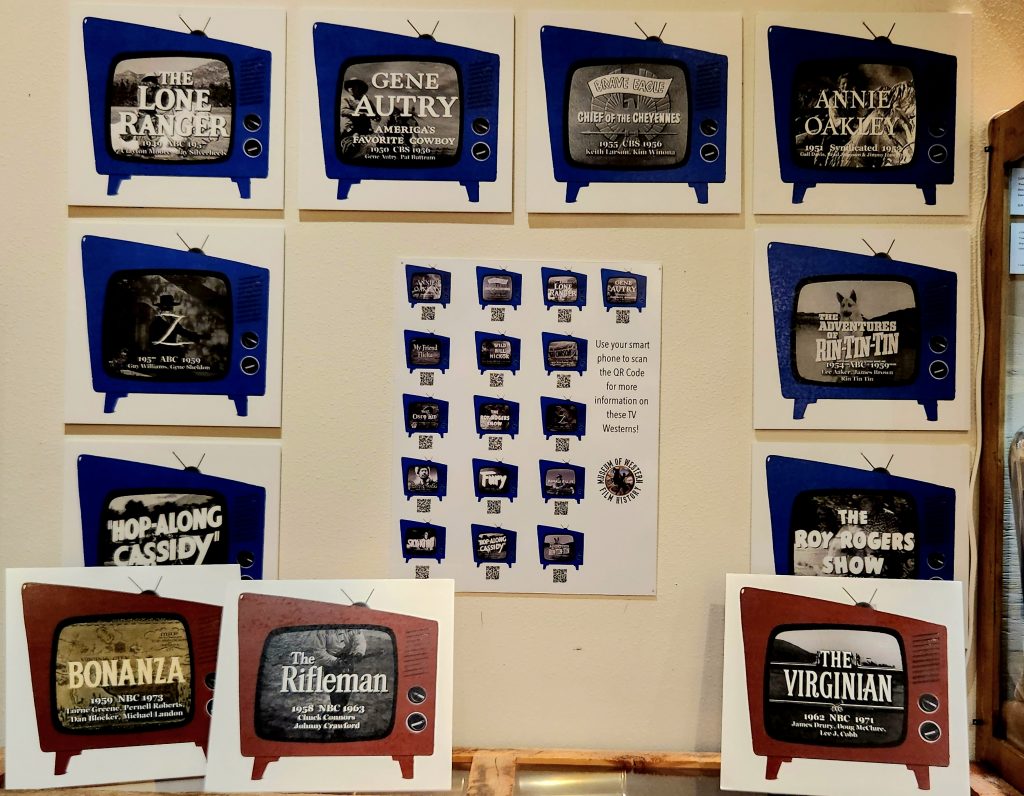
The museum has a 15-minute movie that details many of the movies and movie stars who were filmed in the area, riding horses, driving fast cars, or fighting aliens. We enjoyed exploring all the memorabilia, and highly recommend this quick stop if you visit Lone Pine (thank you, Amy, for this recommendation).
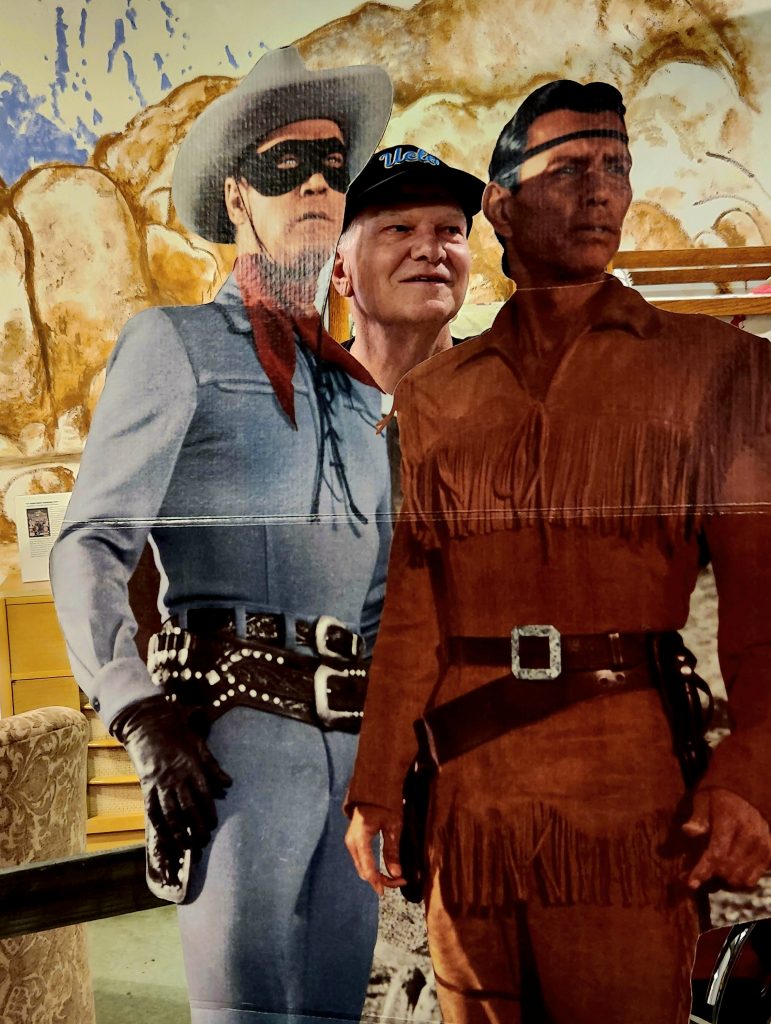
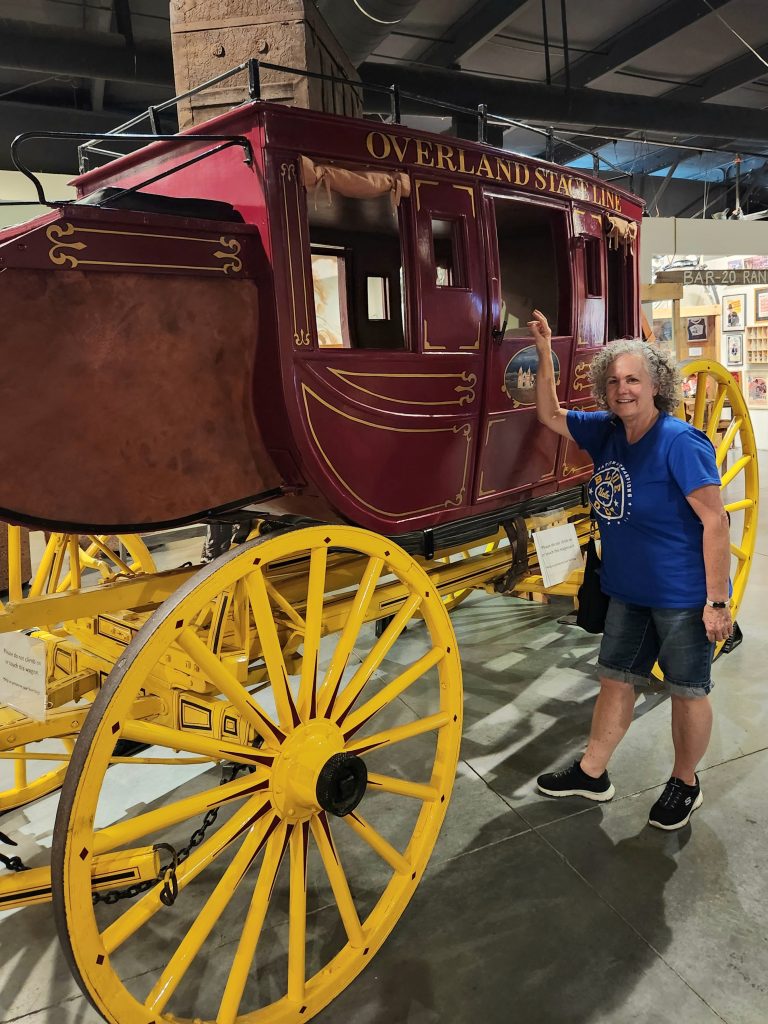
4) The biggest highlight of our time in Lone Pine was visiting the Alabama Hills Recreation Area (free). It’s shocking to me to realize that after a combined 124 years of living in California (between the two of us), neither of us had ever been to this beautiful place. In fact, I had never even heard of the Alabama Hills until about three years ago, when we watched a YouTube video of a couple heading to Alaska (see Mortons on the Move Go North Episode 4). Their first stop was the Alabama Hills! What? Where?
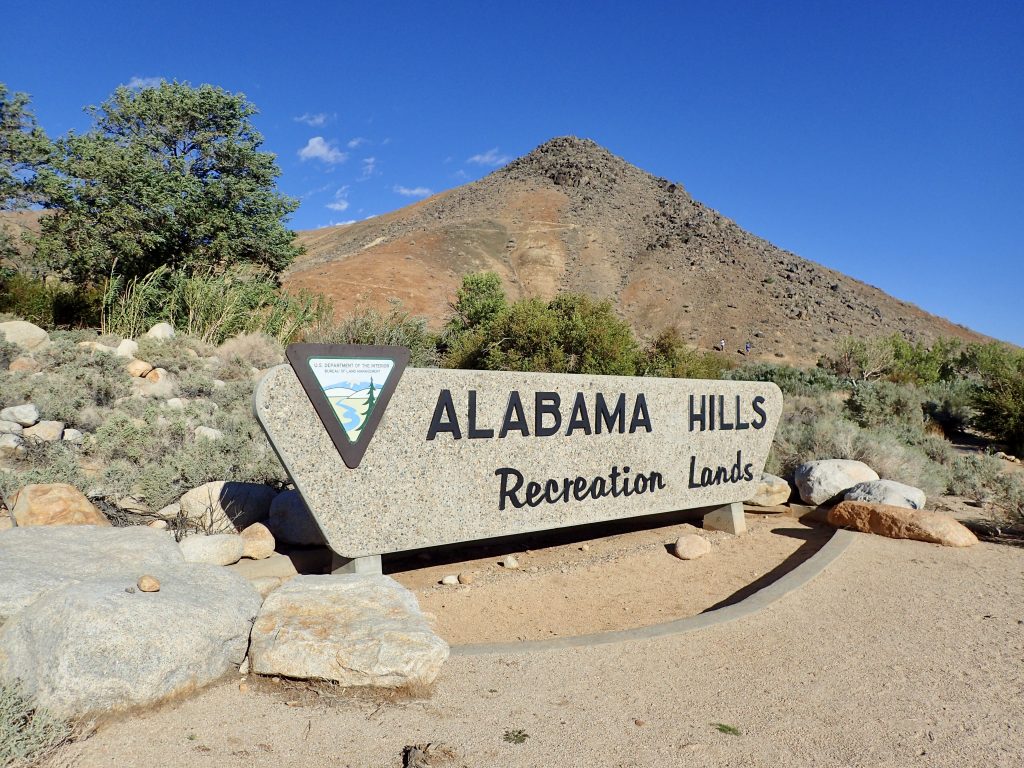
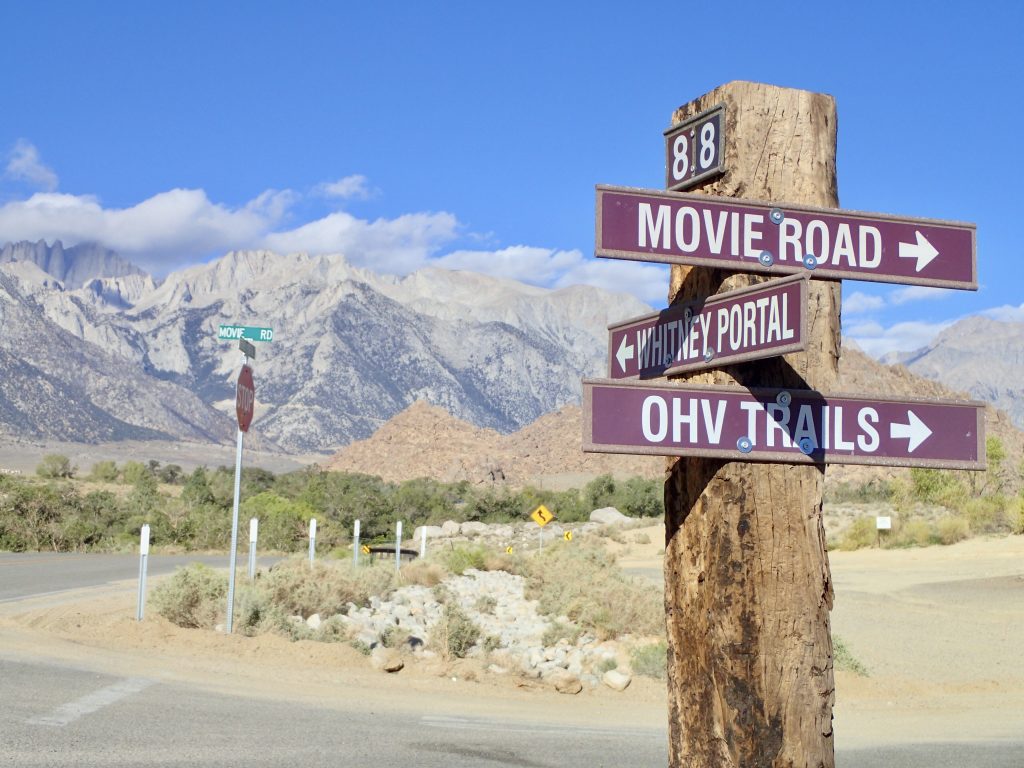
The Alabama Hills are not located in Alabama, but a few miles west of Lone Pine, California. These hills are unique formations of rounded rocks and eroded hills between the Sierra Nevada mountains and the Owens Valley. Located on BLM land, this recreation area consists of lots of dirt roads, a few marked trails, and as much boulder-hopping as you would like. These hills are the reason that over 400 movies have been filmed in this area.
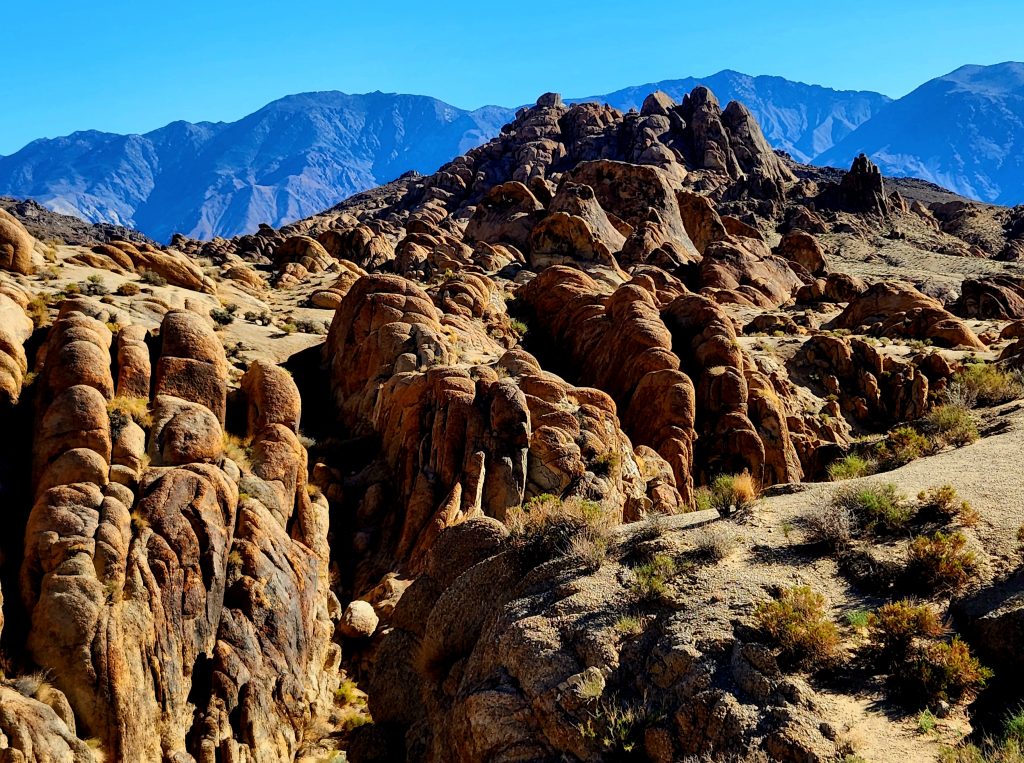
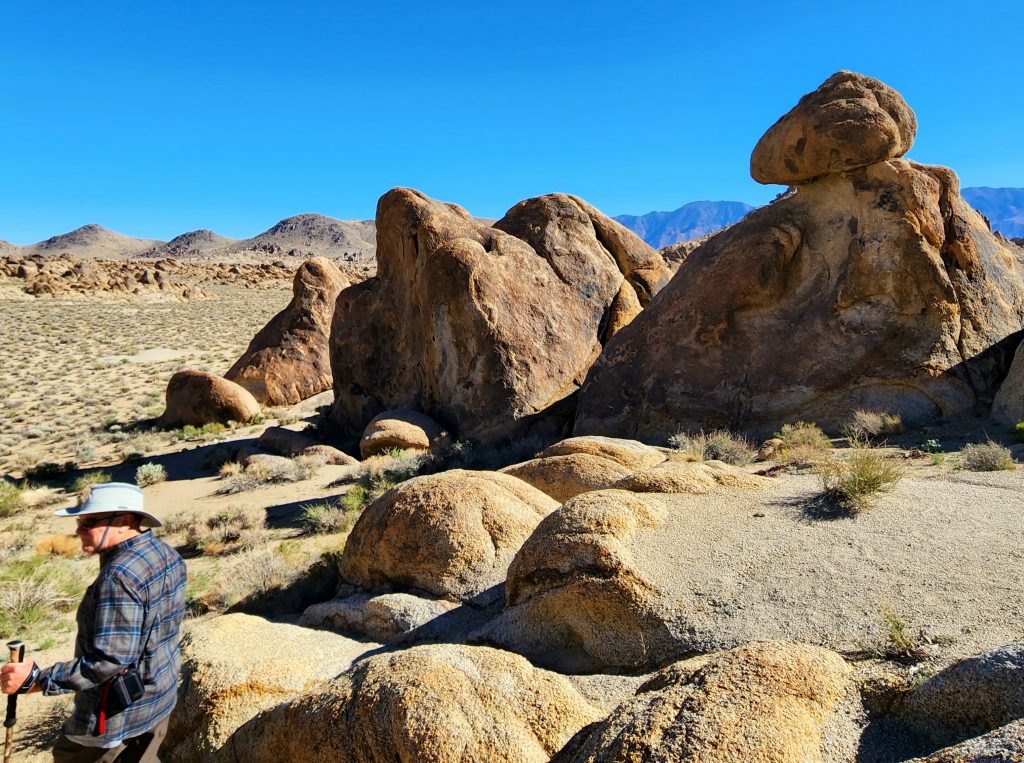
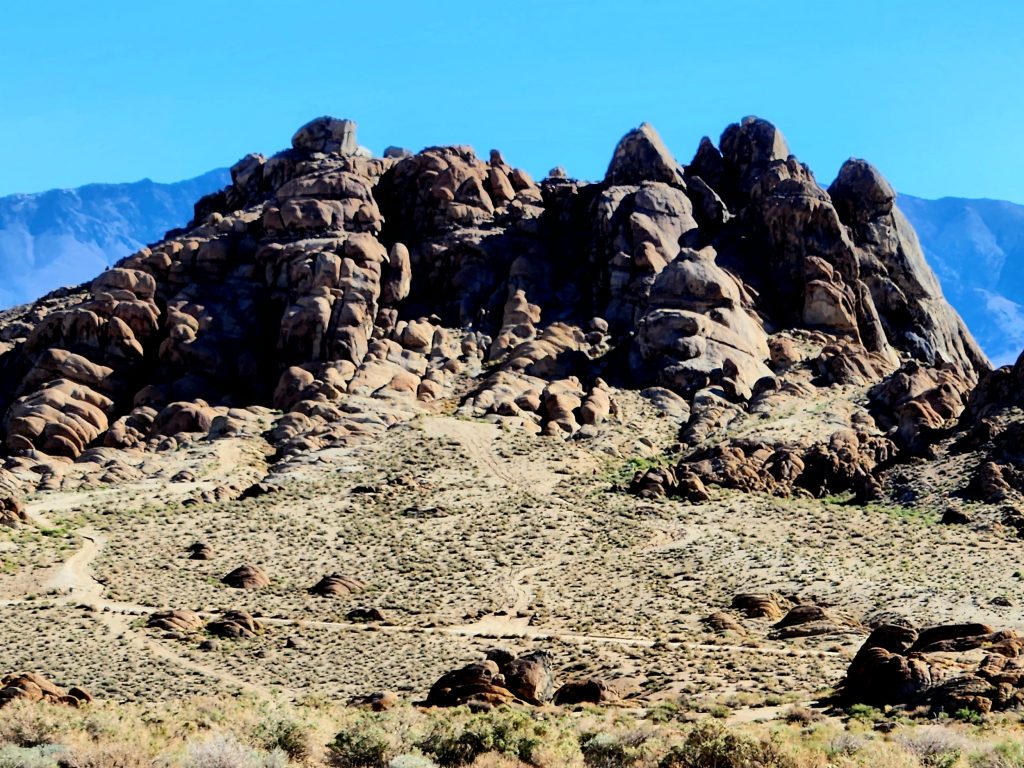
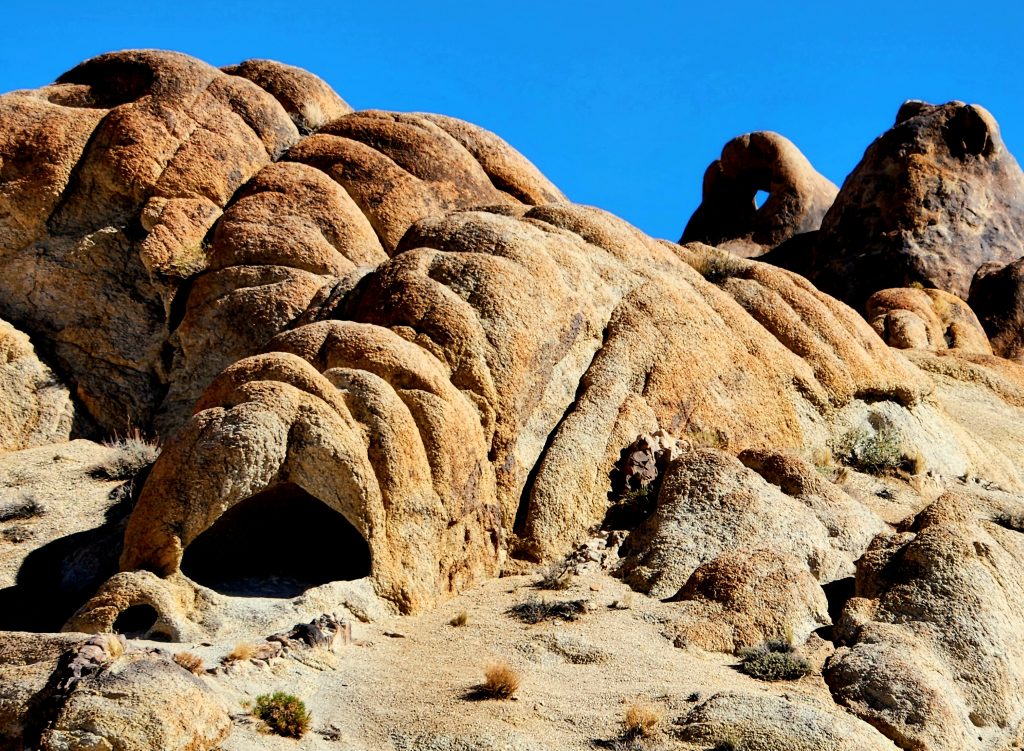
In the morning, we hiked to and around the Mobius Arch, an easy 1-mile hike that gives views of the mountains, the valley, and lots of baby arches. There are apparently over 200 arches in the Alabama Hills, though it would take a ton of work to find them all.
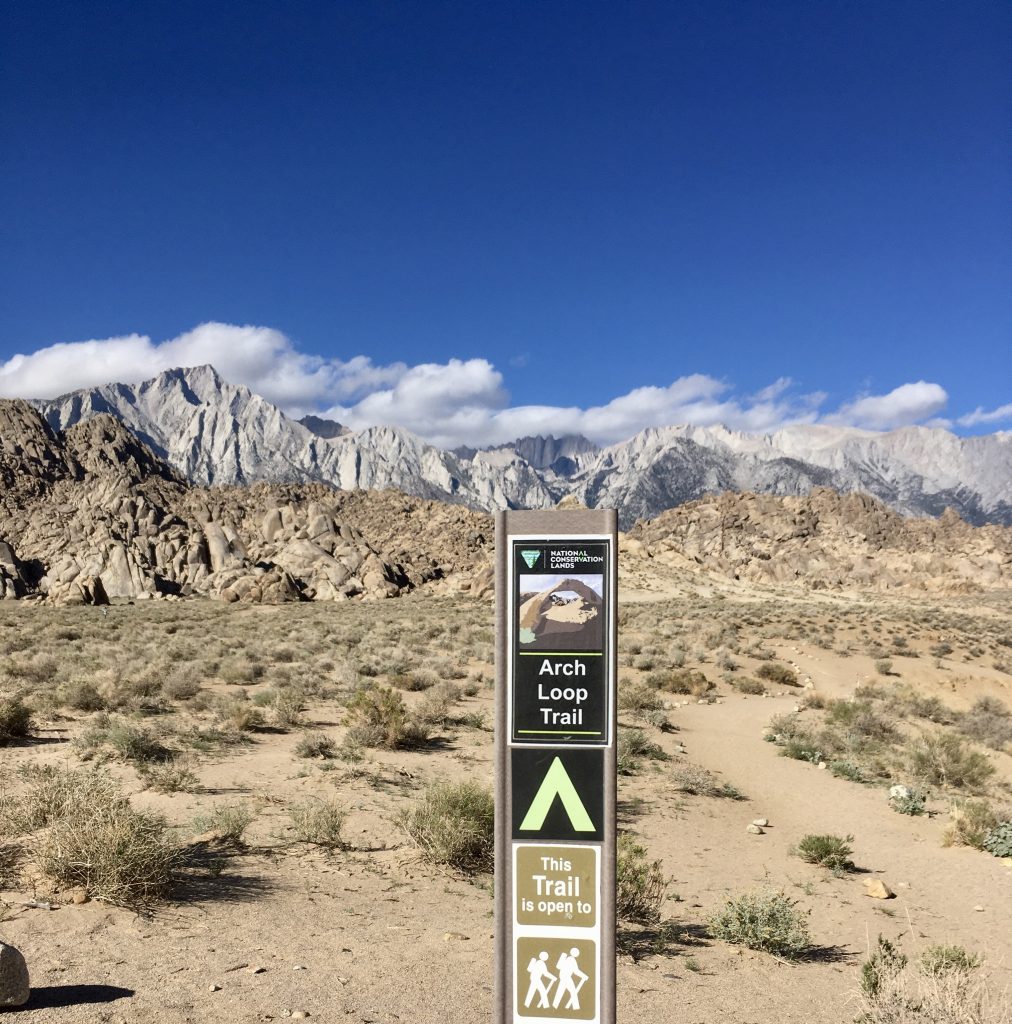
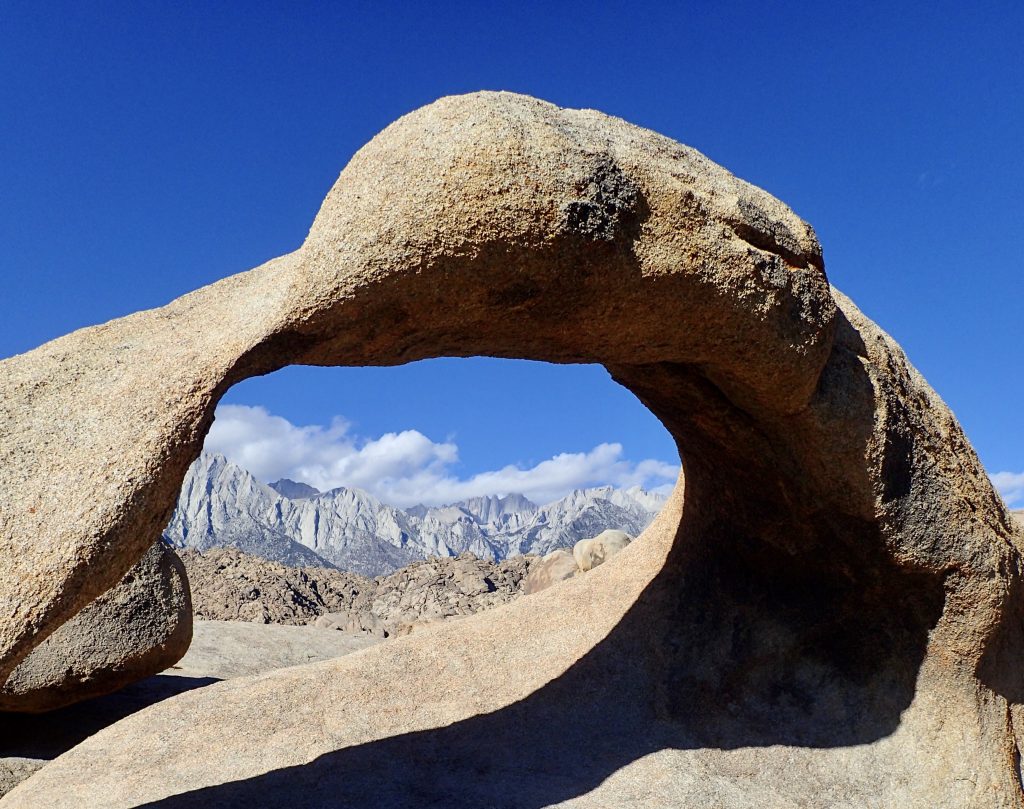
Just before sunset we raced back to try to capture some alpenglow in the Alabama Hills—barely made it for a few shots.
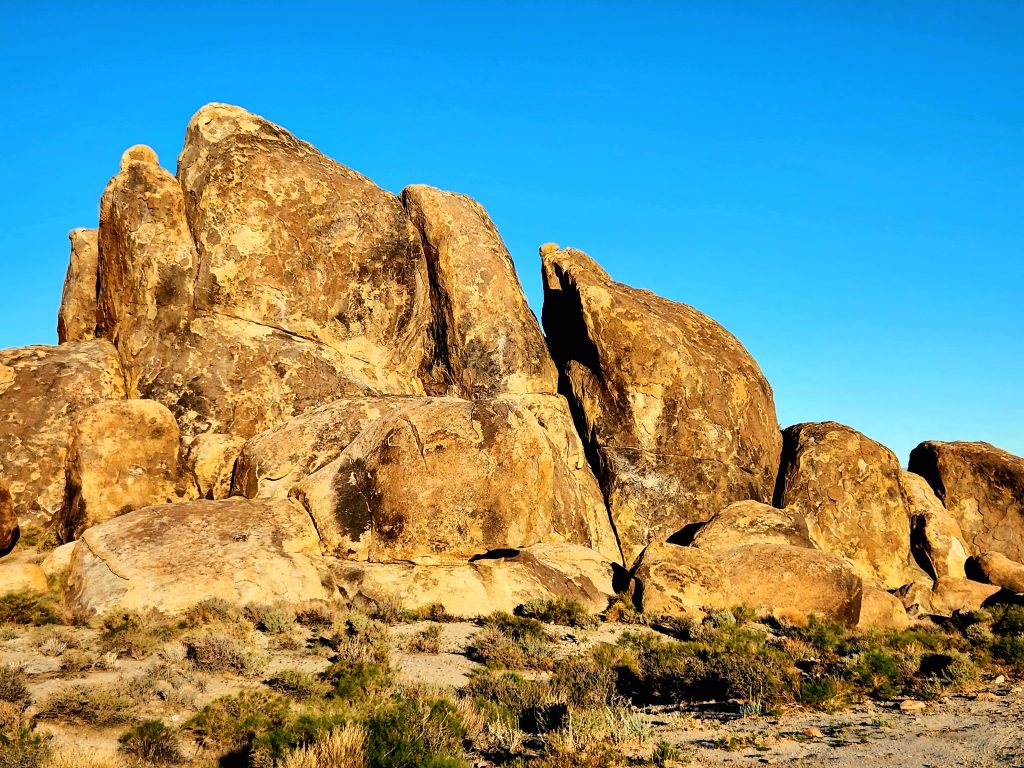
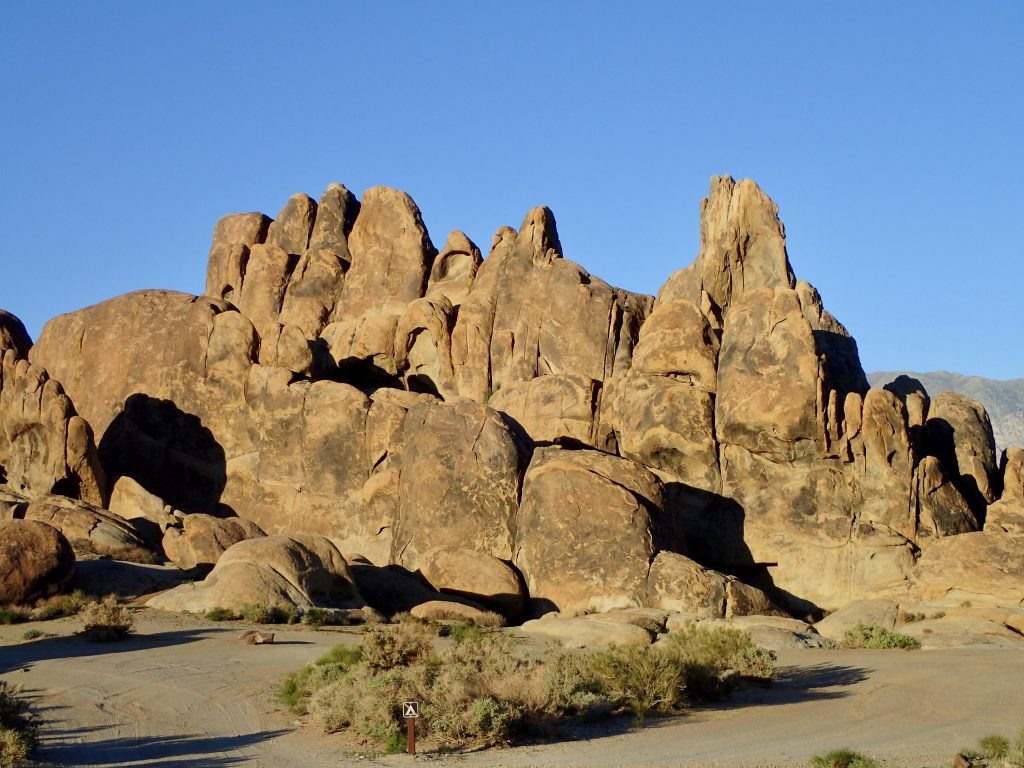
Though we didn’t see much wildlife on this phase of the trip, it was still a very enjoyable—and beautiful–start to our Eastern Sierra exploration! All this in a day-and-a-half!
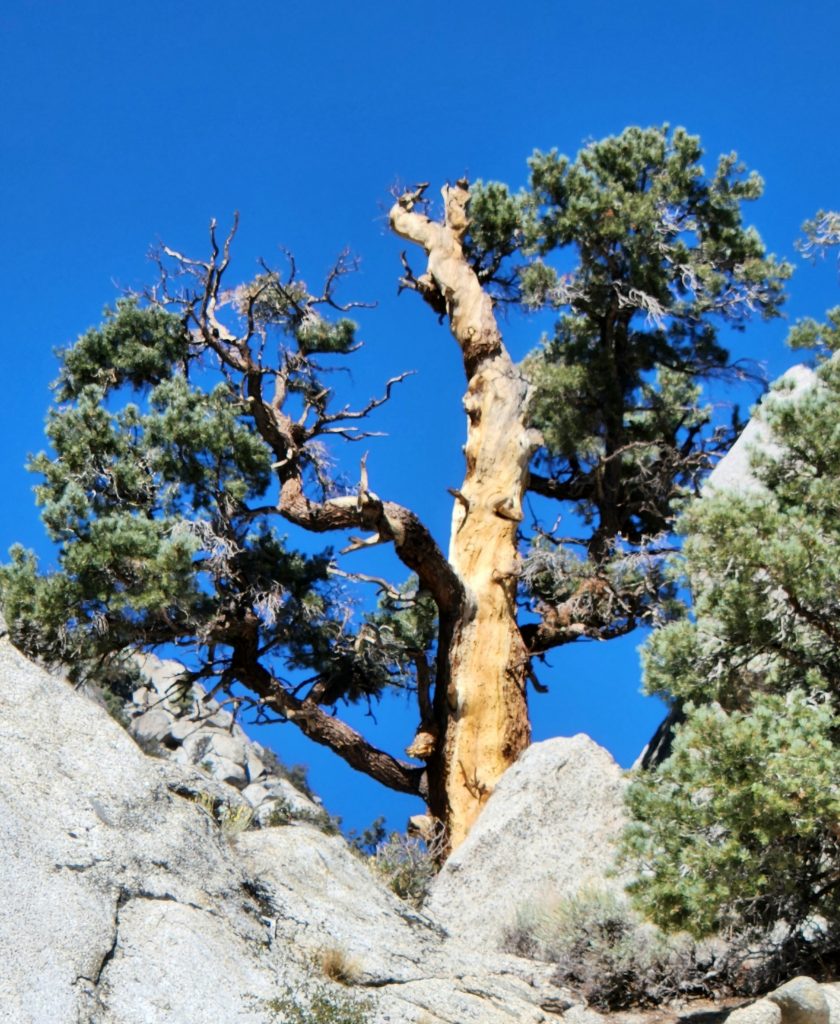

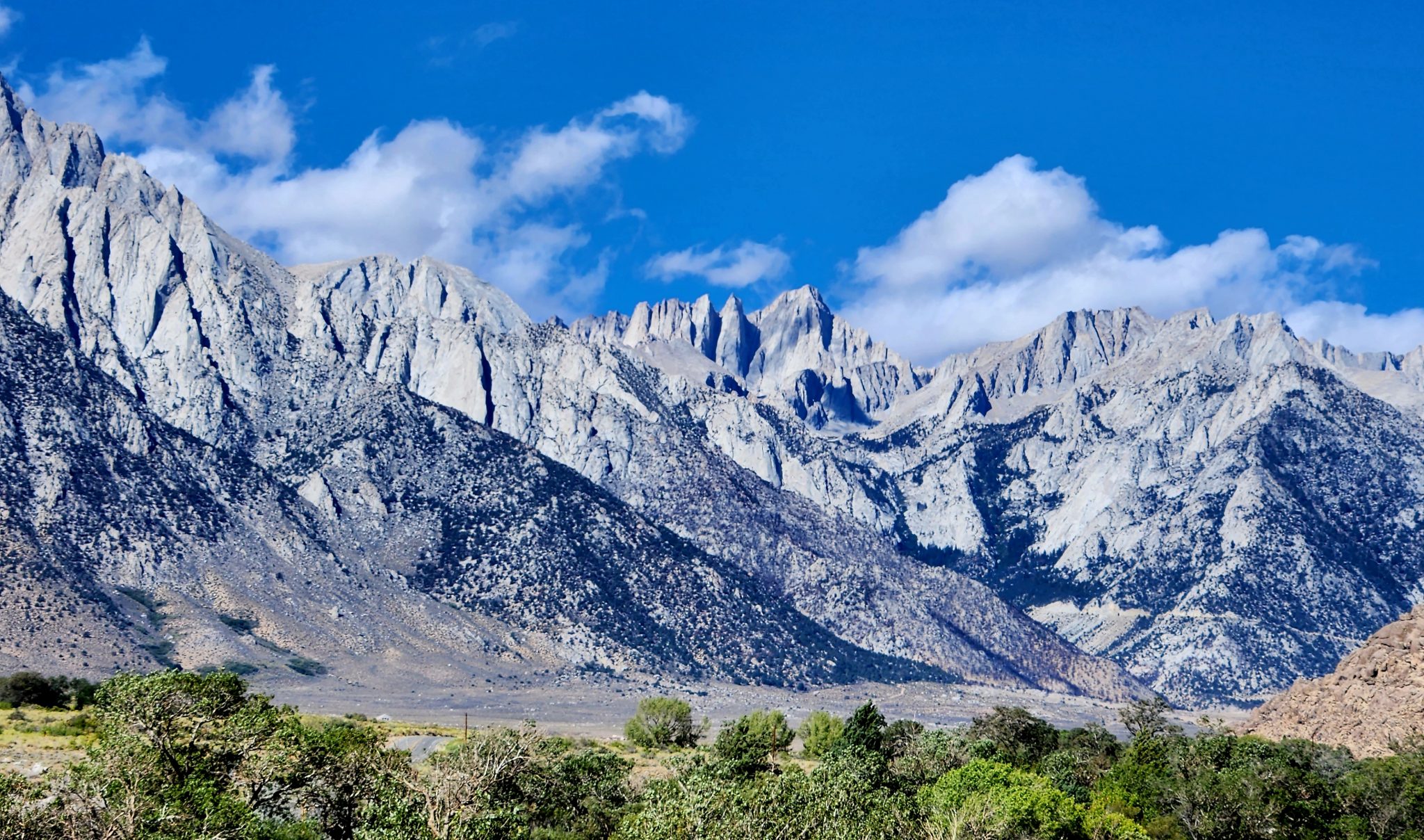
We love the Eastern Sierra and glad you visited some of the best places!
We’re loving this place too. Future trips in store for us. Such easy driving and 24×7 scenery!
I enjoy reading this blog. It is a way for me to see through your eyes a beautiful part of our country! Thank you so much for sharing.
Love, your cousin, Phyllis Brown
Thanks for reading, Phyllis! Great adventures in California for sure.
Love, Hank and Cindy